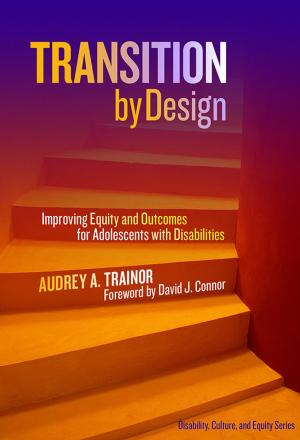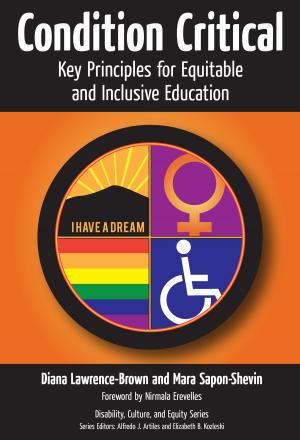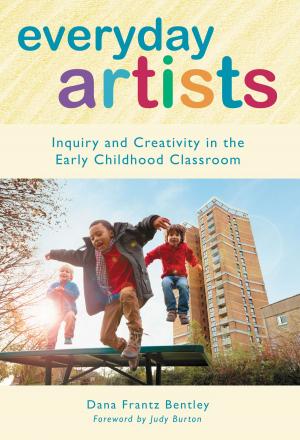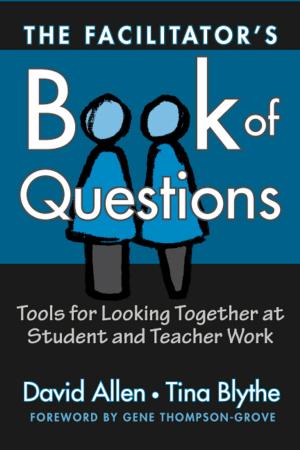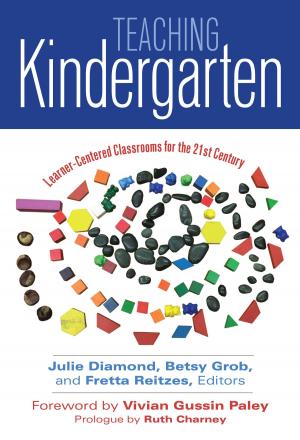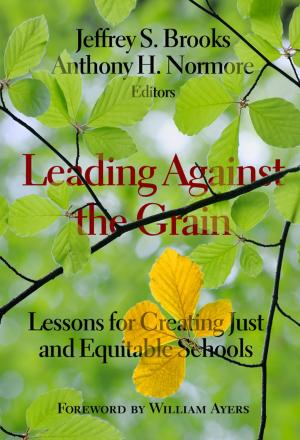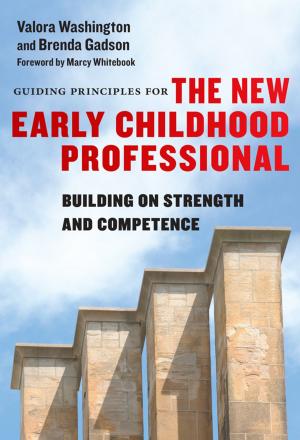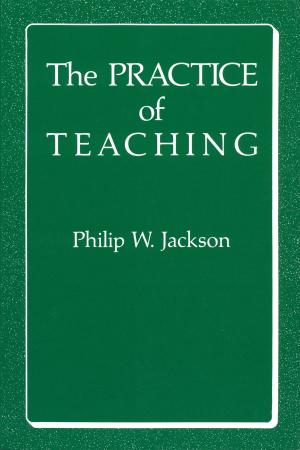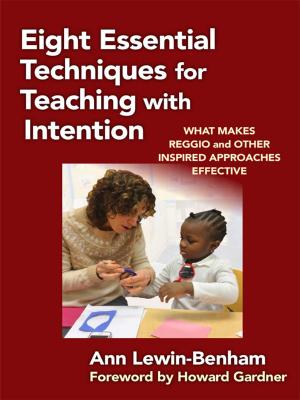Healthy Learners
A Whole Child Approach to Reducing Disparities in Early Education
Nonfiction, Reference & Language, Education & Teaching, Preschool & Kindergarten, Teaching, Teaching Methods| Author: | Robert Crosnoe, Claude M. Bonazzo, Nina Wu | ISBN: | 9780807774168 |
| Publisher: | Teachers College Press | Publication: | December 15, 2009 |
| Imprint: | Language: | English |
| Author: | Robert Crosnoe, Claude M. Bonazzo, Nina Wu |
| ISBN: | 9780807774168 |
| Publisher: | Teachers College Press |
| Publication: | December 15, 2009 |
| Imprint: | |
| Language: | English |
The early childhood field has long understood that targeting the intersection of health and learning is integral to serving children, especially those from disadvantaged backgrounds. Yet this developmentally informed educational philosophy has been jeopardized by an increased emphasis on standards-based accountability. In this book, the authors explain why healthy learning is good for children, schools, and society and they suggest concrete ways to make it happen. Moving back and forth between national statistics and the intimate voices of parents, teachers, and service providers in a large urban school district, they formulate an action plan for educating the whole child and reducing educational inequities. While the book covers a broad spectrum of American children, special attention is given to the growing population of Mexican immigrant children. Chapters include: Issues to Ponder, Keywords, Take-Home Messages, and Next Questions.
Book Features:
- An in-depth examination of the connection between good health and learning that all too often is lost in the daily hustle and bustle of families and schools.
- Statistical evidence from the national level combined with the voices of participants on the local level, providing a scientifically rigorous and personalized portrait of early childhood education in the United States.
- A focus on diversity and inequality, highlighting the experiences of children from underserved and often marginalized groups.
“Blending diverse data sources and analytic tools, Crosnoe, Bonazzo, and Wu present a compelling case for linking ECE with health in policy and practice. The authors paint a cogent picture of early learning in social contexts, with a focus on the paradoxical trajectories of the children of Mexican immigrants. Pedagogically rich in terms of policy and methodologically innovative, this books shows the power of multimethod research.”
—Beth Graue, Sorenson Professor of Childhood Studies, Department of Curriculum and Instruction, University of Wisconsin–Madison
“This book is important for anyone who is concerned about educational equity, high quality early education, educational policy issues, or improving educational and occupational outcomes for vulnerable populations. One aspect of early education that is frequently overlooked is health care, and its central role in early learning is highlighted in this book. Although Healthy Learners focuses on the Mexican immigrant population, the analysis, findings, and recommendations are highly relevant for all children and families that face adversities. The writing is clear, multiple forms of data are provided to support arguments, and the ‘voices’ or personal reflections of children, parents, and providers vividly illustrate the main points of each chapter. I highly recommend this book to all levels of the early care and education profession.”
—Linda Espinosa, University of Missouri–Columbia
The early childhood field has long understood that targeting the intersection of health and learning is integral to serving children, especially those from disadvantaged backgrounds. Yet this developmentally informed educational philosophy has been jeopardized by an increased emphasis on standards-based accountability. In this book, the authors explain why healthy learning is good for children, schools, and society and they suggest concrete ways to make it happen. Moving back and forth between national statistics and the intimate voices of parents, teachers, and service providers in a large urban school district, they formulate an action plan for educating the whole child and reducing educational inequities. While the book covers a broad spectrum of American children, special attention is given to the growing population of Mexican immigrant children. Chapters include: Issues to Ponder, Keywords, Take-Home Messages, and Next Questions.
Book Features:
- An in-depth examination of the connection between good health and learning that all too often is lost in the daily hustle and bustle of families and schools.
- Statistical evidence from the national level combined with the voices of participants on the local level, providing a scientifically rigorous and personalized portrait of early childhood education in the United States.
- A focus on diversity and inequality, highlighting the experiences of children from underserved and often marginalized groups.
“Blending diverse data sources and analytic tools, Crosnoe, Bonazzo, and Wu present a compelling case for linking ECE with health in policy and practice. The authors paint a cogent picture of early learning in social contexts, with a focus on the paradoxical trajectories of the children of Mexican immigrants. Pedagogically rich in terms of policy and methodologically innovative, this books shows the power of multimethod research.”
—Beth Graue, Sorenson Professor of Childhood Studies, Department of Curriculum and Instruction, University of Wisconsin–Madison
“This book is important for anyone who is concerned about educational equity, high quality early education, educational policy issues, or improving educational and occupational outcomes for vulnerable populations. One aspect of early education that is frequently overlooked is health care, and its central role in early learning is highlighted in this book. Although Healthy Learners focuses on the Mexican immigrant population, the analysis, findings, and recommendations are highly relevant for all children and families that face adversities. The writing is clear, multiple forms of data are provided to support arguments, and the ‘voices’ or personal reflections of children, parents, and providers vividly illustrate the main points of each chapter. I highly recommend this book to all levels of the early care and education profession.”
—Linda Espinosa, University of Missouri–Columbia

